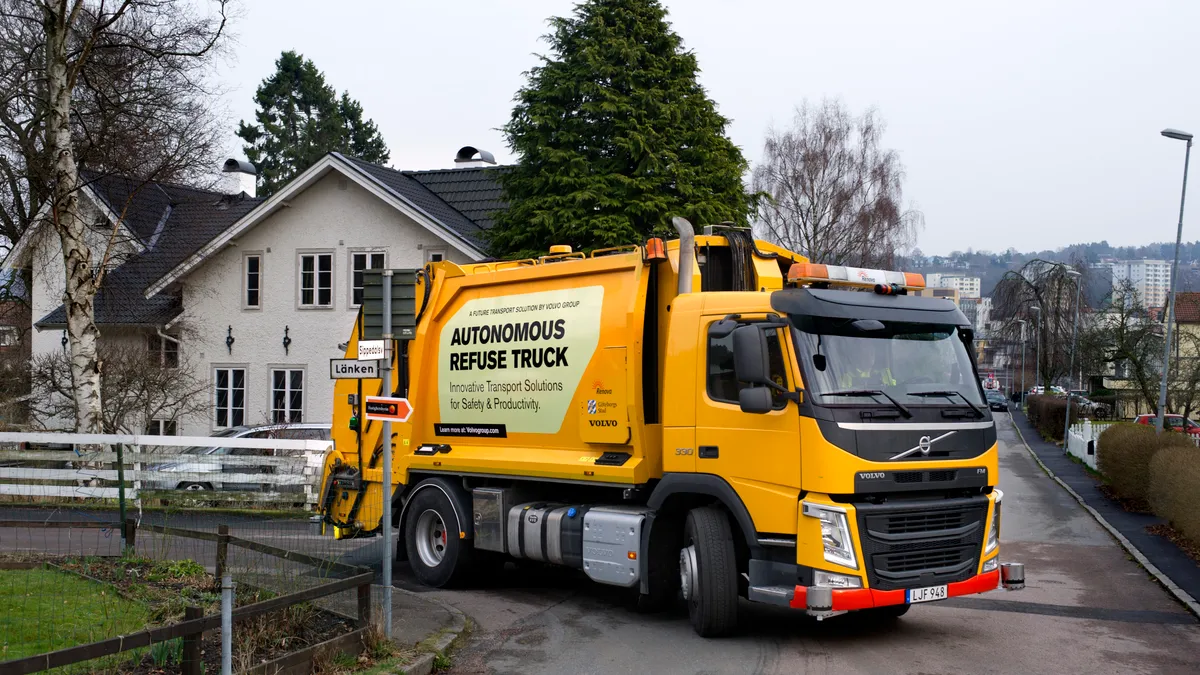Dive Brief:
- The Volvo Group announced it is testing an autonomous refuse truck in Sweden with service provider Renova through the end of the year.
- The self-driving vehicle is accompanied by a collection worker who can help adjust routing information and rides in the cab until stops are reached. As displayed in a video from Volvo, the worker then walks alongside the truck while it drives in reverse and collects residential carts without having to get in and out of the cab between stops.
- The truck uses sensors to constantly check its proximity to vehicles, pedestrians and other objects. According to Volvo, the truck's autonomous design can also yield efficiencies in gear-changing, steering and speed that in turn lead lower fuel use and lower emissions.
Dive Insight:
Volvo previously announced it was testing an autonomous mining truck in Sweden and this vehicle has many of the same features for navigation and spatial awareness. The company has also partnered with Uber to test autonomous trucks in the U.S. Though aside from a drone-operated collection robot debuted last year, this is the first time Volvo has publicly shown off its autonomous waste collection technology.
While the topic has been discussed by a few newer companies and international figures, autonomous collection vehicles are viewed by many in the industry as an idea from the distant future. Current fleet innovations are more focused on converting to compressed natural gas and alternative fuels. Other new features such as electric powertrains are also seen as a step toward fully electric vehicles at some point. Modern trucks — especially in larger fleets — now have cameras, in-cab routing software and automated collection arms where applicable. Many of those advances will continue to be key features in vehicles for years to come, but the potential for autonomous collection surpasses them all by far.
Making sure this technology can work at scale, and navigating the inevitable regulatory and legal questions in the U.S., will take time. If they are ever brought to market these trucks would also likely be expensive. Yet the potential for emissions reduction, collection efficiency and reduced risk of occupational for workers could make autonomous trucks an attractive idea if and when they do become a reality in the industry.














